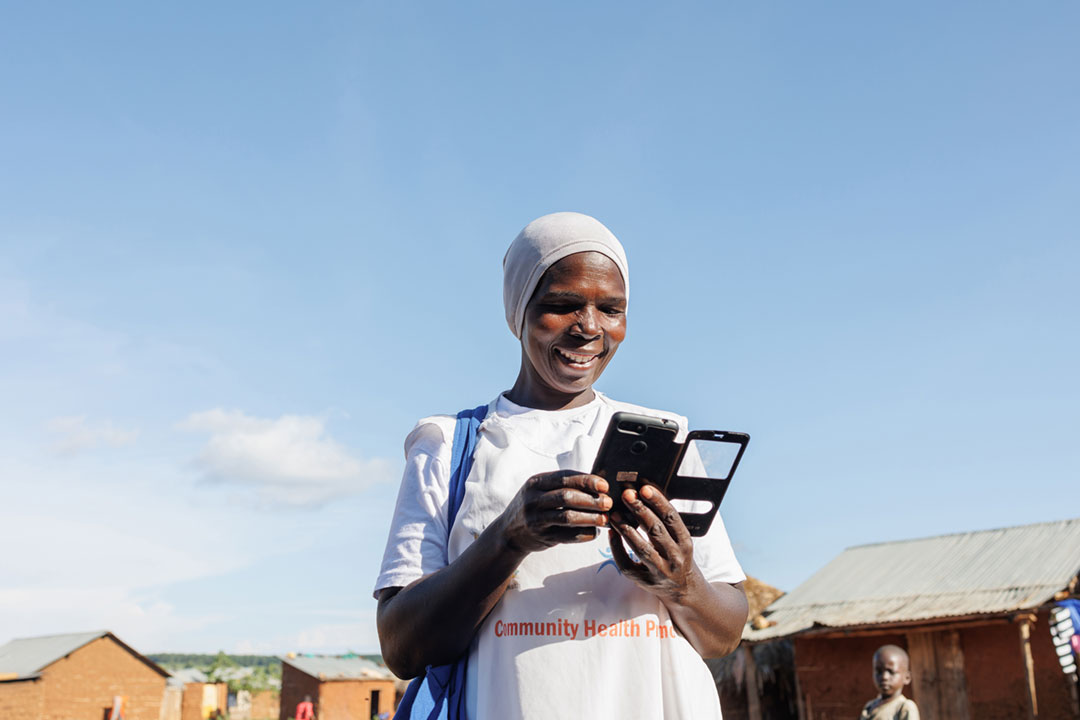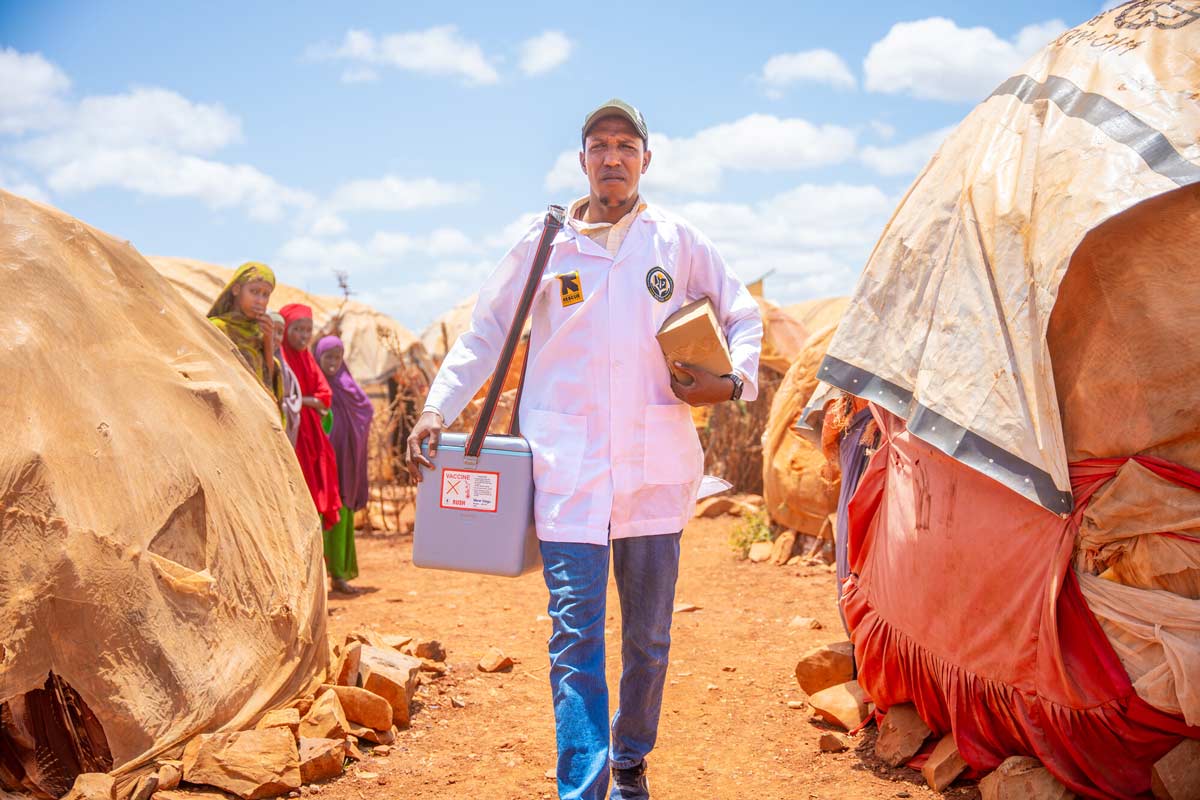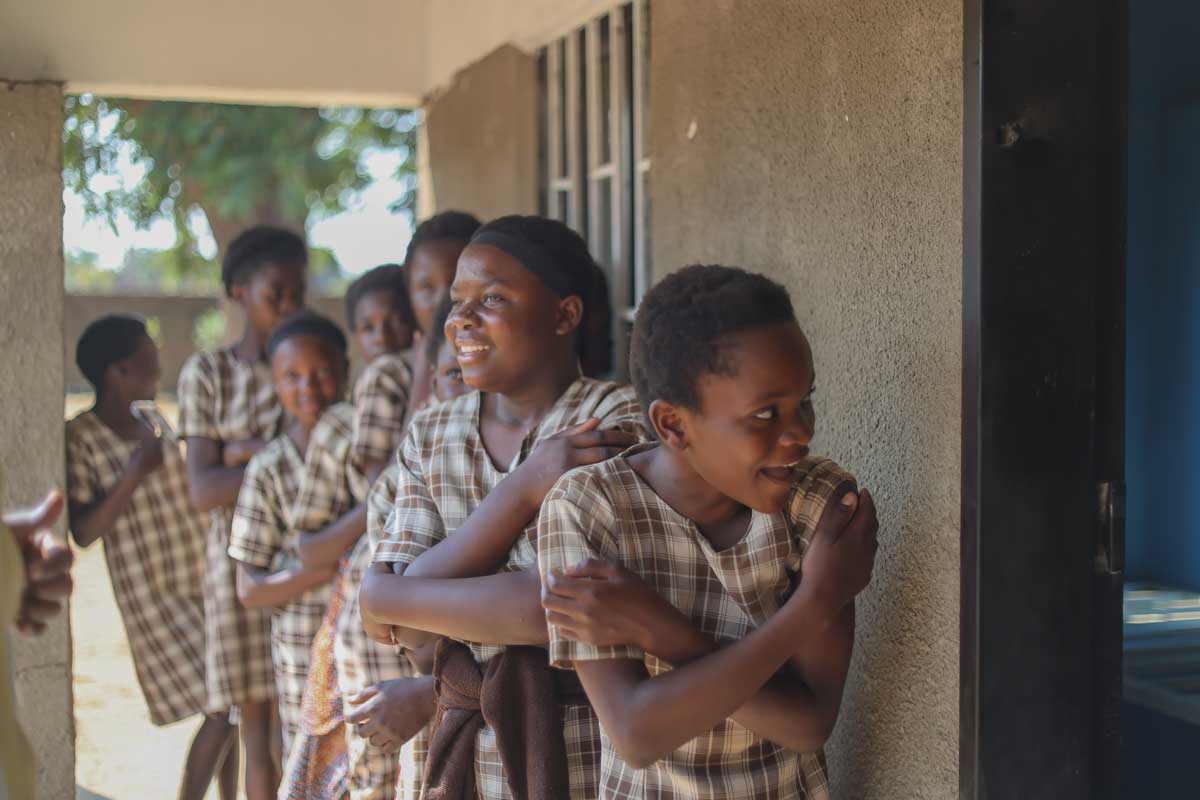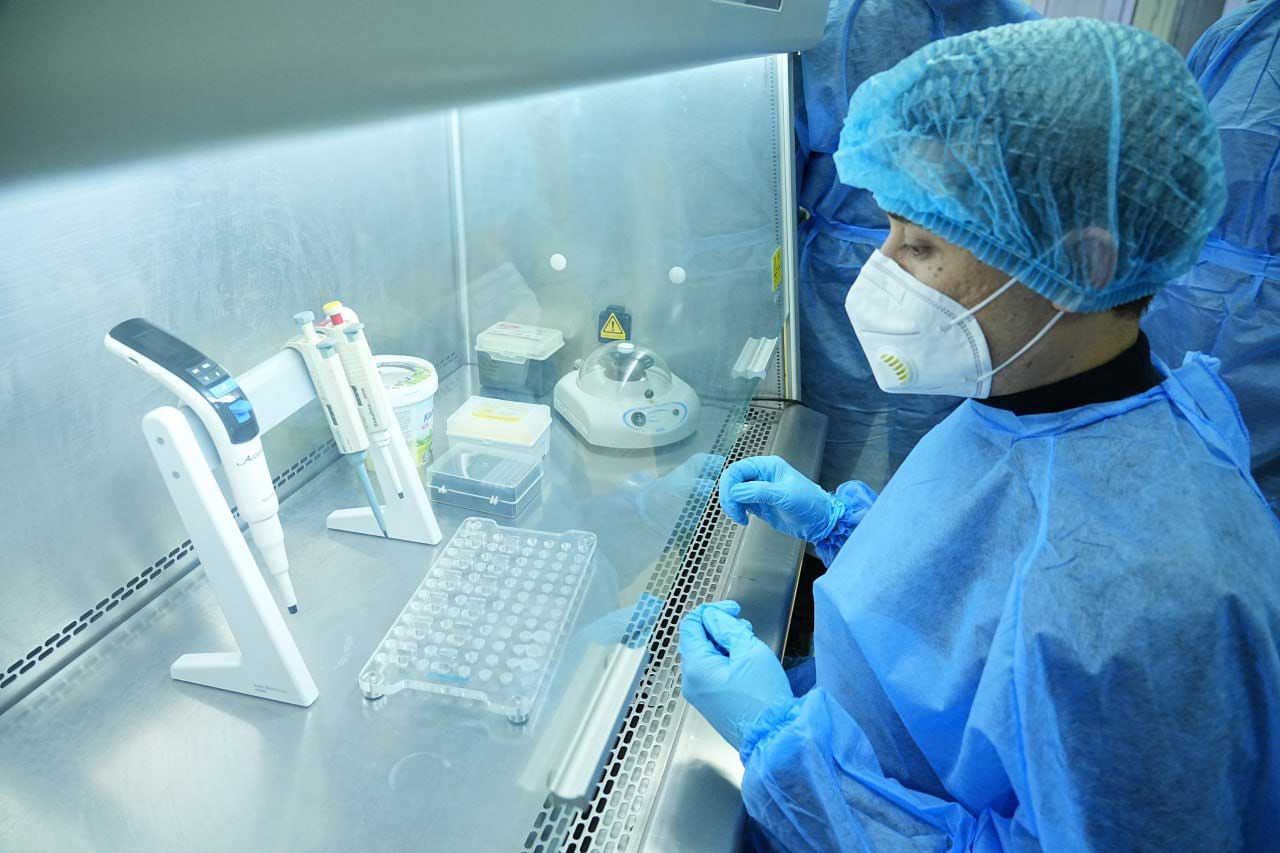How does learning make a difference in global health?
The experiences of health workers suggest that everyday activities – rather than formal training events – provide an abundance of learning opportunities.
- 4 June 2024
- 13 min read
- by Ian Jones
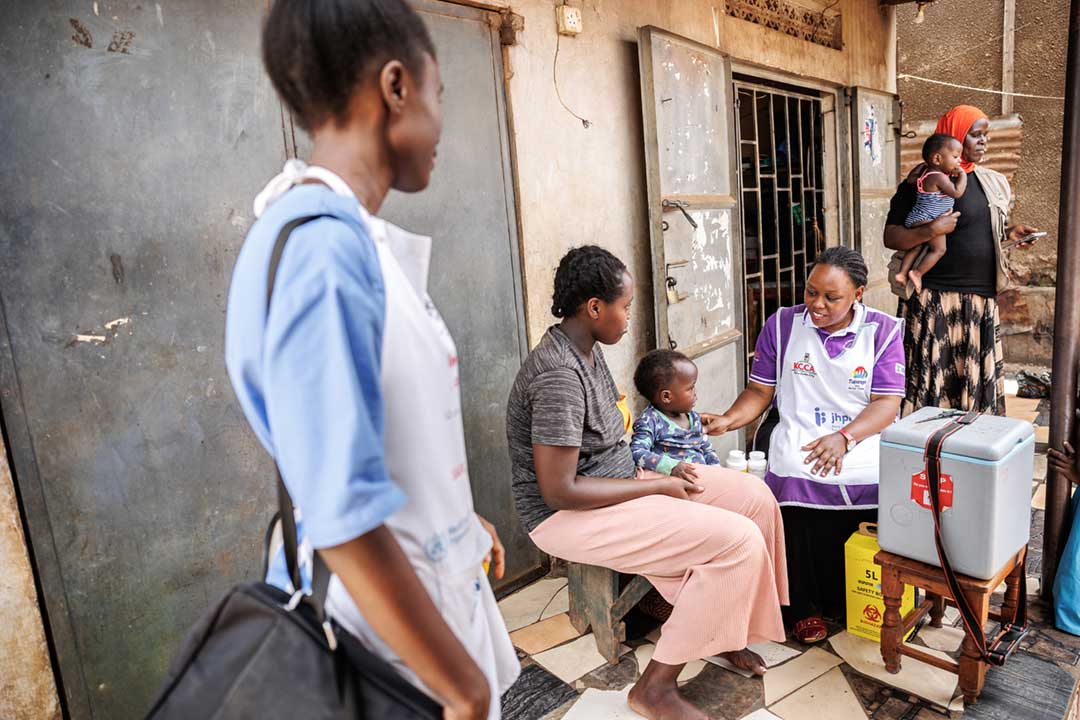
When we think of learning, most of us visualise classrooms or formal training events. But if 'learning" is considered to be any influential experience that affects what we know – and, more importantly, what we do – then it becomes clear that much learning takes place outside a traditional educational context.
Health workers across the world study carefully constructed curricula, pass exams and gain certificates. Yet their learning does not stop there. Thrust into the real world, they rapidly learn that their learning is far from complete.
In advance of a "Teach to Reach: Connect" experience sharing event on 20 June 2024, The Geneva Learning Foundation, a Swiss non-profit specialising in programmes to support new learning and leadership, asked registrants to share an important learning experience in their professional lives. The responses provide a fascinating insight into the myriad ways in which health workers learn – individually, and as part of teams.
Learning from supervisors and mentors: respondents have gained much from listening to those with knowledge and experience they are happy to share.
"After sensitisation in the community by the community health worker, the population was not willing to participate in the study. We spoke with the chief of the health centre. On Sunday, he went to the various churches in the community, inviting all to the health centre for screening. On that day we collected 350 participants. I learned that we should always search for and use opinion leaders in the community, those that the population listens to. My academic mentor gave me this idea."
– Anon, Data Manager, Ministry of Health, Bafia health area, Cameroon
Often, those in leadership positions are the most influential teachers:
"I was lucky to be amongst primary health care workers at a community outreach session and we happened to have our leader who was good and dedicated to her work and she gave us a wonderful tutorial and I greatly learned on how to immunise and reach out to the community on good health."
– Mathias Mayaki, Public health specialist (MPH), global health partner, Niger State, Nigeria
"One scorching afternoon, we received a call about an expectant mother, Amina, from a nearby village who was in active labour and showing signs of complications. Myself and the midwife in-charge, Shiata Adamu, and two other nurse assistants, quickly prepared our equipment and set out to the village. Upon arrival, it was evident that Amina was experiencing prolonged labour, a condition that could endanger both her life and that of her unborn child. Shiata Adamu, who had recently attended a workshop on emergency obstetric care organised by the Ghana Health Service, took charge. As she worked, Shiata Adamu explained each step to us, turning the emergency into a real-time learning experience.
With her guidance, we successfully managed Amina's delivery, and she gave birth to a healthy baby boy. This experience profoundly impacted our team. We realised the importance of continuous learning and the application of new knowledge in real-world scenarios. After this incident, we implemented regular training sessions at our CHPS compound, where we shared knowledge and practised new techniques we learned from various workshops. I took it upon myself to lead some of these sessions, especially focusing on emergency obstetric care, given its critical importance in our community. This peer-learning approach fostered a culture of continuous improvement and collaboration within our team."
– Fatima Bintu Dawuda, Nurse, Ministry of Health, North East Gonja District, Ghana
Learning from everyday experience: Many practitioners discussed how their day-to-day experiences had told them something new that affected how they worked. In Ghana, this included a realisation of the importance of men in scheduling:
"Prior to our fixed Child Welfare Clinic days, we enter into the communities, reach various mothers and husbands to remind them of the date for their due vaccination and child welfare clinic services. We realised, husbands mostly kept dates, giving to their wives. It's therefore important to keep husbands involved in welfare clinics."
– Bedi Raymond, Nurse, Ministry of Health, Ahanta West municipality, Ghana
"During immunisation in a very remote area, we learned that some men do not allow their wives to come for these vaccinations. We got to find out that this was because we had more male vaccinators than female. This changed how we approached some homes, and this has improved the number of people vaccinated."
– Chidinma Ozoh, Monitoring and Evaluation, Ministry of Health, Federal Capital Territory, Nigeria
Furthermore, every experience can be an opportunity to learn, for those curious or motivated to learn, as seen when a practitioner encountered a zero-dose child:
"While [in] discussion with the mother, asking her why did she not bring the child at birth for routine immunisation, or she didn't know about it? The mother replied that she was told that any child receiving the vaccine will never have a child; that was the reason she didn't brought him to the clinic. At the end of the discussion I found out that it's only lack of orientation to the rural dwellers that causes such vaccine hesitancy. I then formed a team of health practitioners and I went to hard-to-reach areas where we mobilised the community on the importance of vaccines for the children, and the impacts on the six killer diseases affecting children."
– Nasiru Umar, Community health worker, Garo health facility, Mashi Local Government Area, Katsina State, Nigeria
Learning from bad experiences and mistakes: Things don't always go well, but bad experiences can be critical opportunities for learning, as in this response from Cameroon, where an emergency response after flooding was poorly executed.
"It was so fast that we lacked proper coordination. There were lots of misplaced priorities, back and forth on lots of things, and the results were not well captured. The M&E system was weak, while children continue[d] to suffer. Then we had to fall back to the office, design a proper planning, and also a disaster readiness plan. We were better this time, and we could save on time. Proper coordination is key to operations, we learned."
– Yamba Bezaine Josue, Programs Coordinator, NGO, Fako District, Cameroon
In another case, well-intentioned efforts to promote good water, sanitation and hygiene (WASH) practices in a slum area were not well received:
"…the initial response was lukewarm. The presentations felt disconnected from the daily realities of the community. Some women politely listened, but their faces remained etched with worry. The children, initially curious, grew restless with the formal language. It was a humbling moment. We were well-intentioned, armed with data and statistics, but clearly missing the mark.
When a local Mama Aisha pointed out that the suggested activities were not suitable for the local context, the approach was changed completely, and drew upon existing local practices:
The change was remarkable. Mothers, initially hesitant, engaged in lively discussions. Children eagerly participated in handwashing demonstrations using locally available materials. Mama Aisha and the other community leaders became our partners, not just our subjects. Their insights enriched our understanding and ultimately led to a more impactful intervention. Since then, we've incorporated this community-driven approach into all our research projects."
– Alinda Isaac, Nurse, Kampala District, Uganda
These examples illustrate how important it is to be open and honest when things do not go well, and to constructively look for solutions rather than people to blame.
Learning from supportive colleagues: Several respondents noted how learning within teams enables practitioners to support each other, as in the introduction of a new project management tool in Kenya:
"…as team members became proficient in using the tool, we helped each other troubleshoot issues and optimise our usage, fostering a culture of continuous learning and support within the team."
– Everlyne Samwel, Community health worker, NGO, Kisii County, Kenya
Similarly, while trainers can introduce new approaches and tools, such as Excel-based methods of data management, team members can be critical to embedding them in daily practice:
"As I became more proficient with Excel, I took on the role of a mentor for my colleagues. I conducted mini-workshops, shared tips and best practices, and provided one-on-one assistance to those struggling with specific features. This not only reinforced my own understanding but also fostered a collaborative learning environment within the team."
– Dancan Okaka, Community health worker, NGO, Kibera Slum, Kibera sub county, Nairobi City County, Kenya
"In the report format was a provision for developing a Theory of Change. My colleague didn't know about it at all and was so confused about what was expected. As for me, it wasn't something new, since I once did it in another previous project development. Hence, I explained what it is and showed him how it is typically done. At the end we did it together, which was reflected in the final report. He was extremely happy to have learnt something new in the course of that project development. He said, 'next time it wouldn't be something new and he can develop it independently'."
– Isa Iya Abdulkadir, Consultant, Zamfara State, Nigeria
Fast learners can therefore be used to help their peers who are struggling, as in a shift from paper- to table-based data recording:
"We noted that some colleagues were faster to grasp this than others. We then decided to make these fast learners the trainers of their peers while on site so that they could understand better by doing. We have learned that sometimes you can't put everyone together to learn something new but have to tailor the process to support each individual's learning style and pace. Also people learn best by doing and when shown by their peers they are more open to try and understand the new learning."
– Shaun Van Rooyen, Quality Assurance Officer (HTS), NGO, Khomas Region, Namibia
Encouragement for learning: Learning is crucially dependent on organisational culture, and particularly the encouraging attitude of leaders, as in two examples relating to the adoption of new treatment approaches – cognitive behavioural therapy (CBT) for pain management and for insomnia.
"The interactive nature of the workshop and the expertise of the facilitators made it relatively easy to learn. However, implementing these new approaches into our practice required some adjustments in workflow and communication among team members, which presented some challenges initially. Our department head played a significant role in facilitating our attendance at the workshop and encouraging us to embrace these new approaches to pain management."
– Isaiah Ayugi, Community health worker, NGO, Nairobi, Kenya
"As team leader I played a crucial role in facilitating the learning process by encouraging attendance at the workshop, providing resources for further study, and fostering a culture of continuous learning within the team. Furthermore, as we became proficient in CBT-I, we took on the role of educating and mentoring junior colleagues, sharing our knowledge and experiences to enhance the collective expertise of the team."
– Eddna P Chandeu, Health Social Worker, NGO, Temeke District, Tanzania
Have you read?
Another role for leadership is to foster the exchange of knowledge between team members.
"One memorable experience was when my team leader organised regular skill-sharing sessions. They encouraged each team member to teach something they were proficient in to the rest of the team. It was incredibly beneficial as it fostered a culture of continuous learning and collaboration."
Mr Abdulfatah, Public health specialist (MPH), Ministry of Health, Kwara State, Nigeria
Learning by consulting: Many respondents highlighted how important it could be to listen to clients and communities, and adapting practices accordingly. In Ghana, for example, team discussions concluded that the changing neighbourhood called for changing practice.
"The district is a fast developing residential area with good access roads to many commercial towns outside the district. In the last two years it has seen many residential buildings. Many of the residents work and do businesses outside the district and therefore leave the house early in the morning and come back late in the afternoon. In engaging with the community we agreed to change our time for our child welfare clinic in some communities from normal working hours to late afternoon and also introduce weekend vaccination."
– Joseph Adomako, Public health specialist (MPH), Ministry of Health, Atwima Kwanwoma District, Ghana
"We learned the importance of flexible service delivery in health care. By understanding the community's specific needs and constraints, we realised that offering immunisation services during weekends could significantly increase accessibility and uptake. This was a new concept for our team, who had traditionally provided services only on weekdays.
As we adapted to this new service model, we shared our experiences and insights with other health care providers in the region. By documenting our process and results, we provided a case study that others could learn from and replicate in their own communities. This initiative not only improved immunisation rates in Mende subcounty, but also enhanced our team's ability to innovate and adapt to better serve our community's needs."
Dominic Savio Kakeeto, Public health specialist (MPH), UNICEF Country Office, Wakiso and Mukono Districts, Uganda
Learning can also be a team-focused activity. It may result from members of a team pooling what they know, as this example from Kenya illustrates:
"As a coordinator, I felt down and did not know what to do. I invited all nurses working in immunisation to address our challenges and identify strategies to improve immunisation coverage; some of the challenges we identified were scheduling of immunisation, nurse attitudes towards clients, long distances to the facilities, and inadequate supplies of immunisation commodities. Through our discussions, we identified a few strategies, and this has undoubtedly improved our immunisation performance."
– Beth Wanjiku Muiruri, Nurse, Ministry of Health, Kahuro Sub-county, Kenya
Learning from peers through Teach to Reach: Several responses mentioned ideas learned from experiences and idea shared by peers at Teach to Reach events. As well as new strategies, participants can also learn how to achieve their goals more effectively, as in an example from Ghana.
"Before I joined Teach to Reach, I was working in the disability field on immunisation, but I did not receive the support I needed from my district. So after I joined Teach to Reach, I learnt how I can get the maximum support from my district by involving and engaging stakeholders through meetings. This has really changed things around, making my work easy. The district has even allowed me to train health staff and other staff in social welfare, the Commission on Human Rights and Administrative Justice, the use of American sign language and Ghanaian sign language to enable good and clear communication with the deaf community to help improve maternal and child health and the safety of persons with disability in Gomoa West District."
– Gifty Akosua Adzigbey, Nurse, Ministry of Health, Gomoa West District/Apam District, Ghana
Learning through formal training: Training sessions are particularly important when standard procedures need to be followed. Practical, hands-on training can be particularly effective, as in this example from Kenya relating to new cold-chain monitoring technology that sends temperature alerts via mobile phone messages:
"What helped me to learn was the way the training was designed. It was a competency-based training with lots of hands-on experience. The leader helped me to learn through coaching and mentorship. After the training, I cascaded the training to the lower levels and helped others learn through coaching."
– Josephine Mutai, Nurse, Ministry of Health, Bomet County, Kenya
Finally, one important lesson is that learning is a continuous process, and the accumulation of experience and wisdom can more than make up for a lack of formal education, as this touching story from Kenya illustrates:
"One day when I was about to go out for field work, my boss stopped me and asked me to accompany two girls who had just joined our organisation as interns. I was surprised because I was only a community health volunteer. So I didn't expect to be the one to help the students during their internship! So, I walked to the CEO's office to confirm it. To my surprise, he said I was the best person to do orientation of what happens within the organisation and that the two girls will work with me throughout the three months of their service. I discovered that I was the best service provider and everyone supported that I should be the one to help the students. This really changed not only the way I worked, but also the way I used to look at myself and think that I wasn't good enough because I dropped out of school and went back to finish my high school ten years later. I got motivated that even the most learned people in our organisation look at my quality service, not my education level or qualifications. I have managed to take up opportunities as they present themselves. This has improved a lot in my workplace and strengthened team spirit. I'm a living example that is used to motivate others not to fear doing anything because of education but experience, hard work and dedication. The two girls got a lot of experience and they came back to seek employment after graduating. We are now colleagues in community development."
– Janet Baustina, Community health worker, NGO, Kibra Subcounty, Nairobi County, Kenya
Topics to be discussed at Teach to Reach 10 will include malaria prevention, climate change and health, and neglected tropical diseases. Request your invitation at https://www.learning.foundation/teachtoreach
Learn more about learning:
Why lack of continuous learning is the Achilles heel of immunization
Learning culture: the missing link in global health between learning and performance
Note: Contributor quotes in this article are their own and do not necessarily represent their employers.
